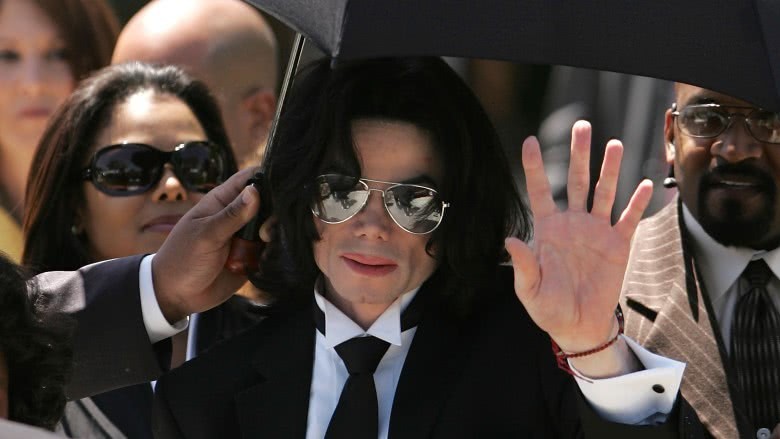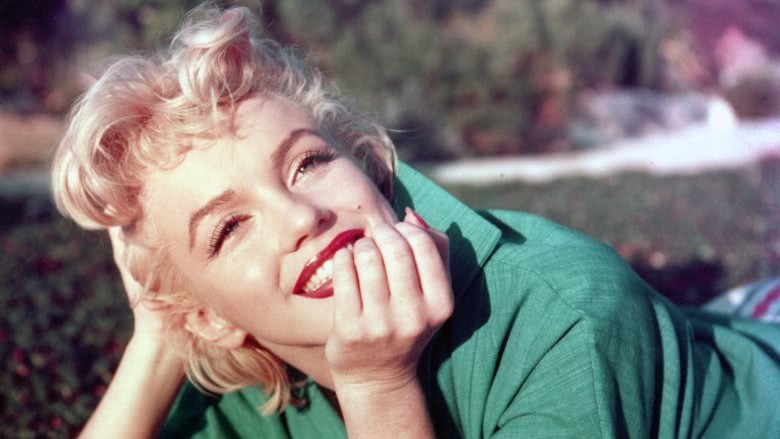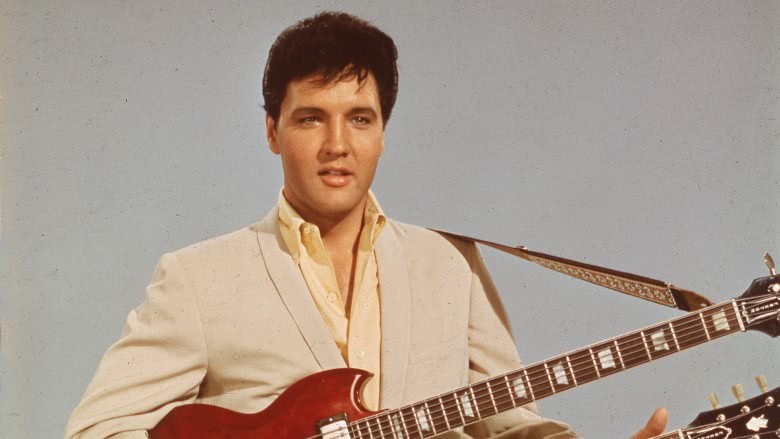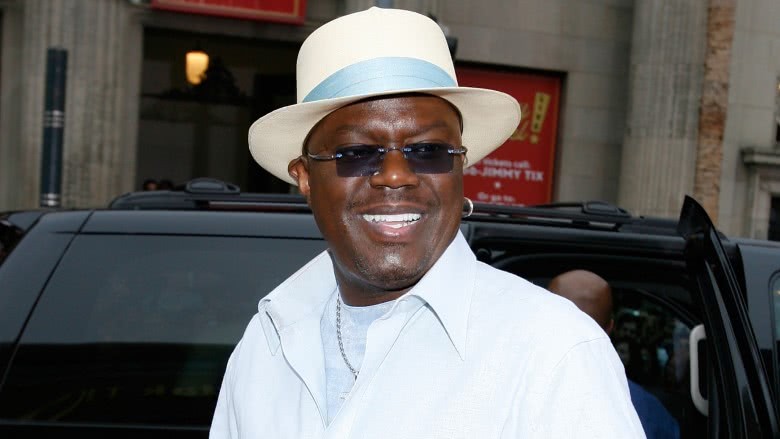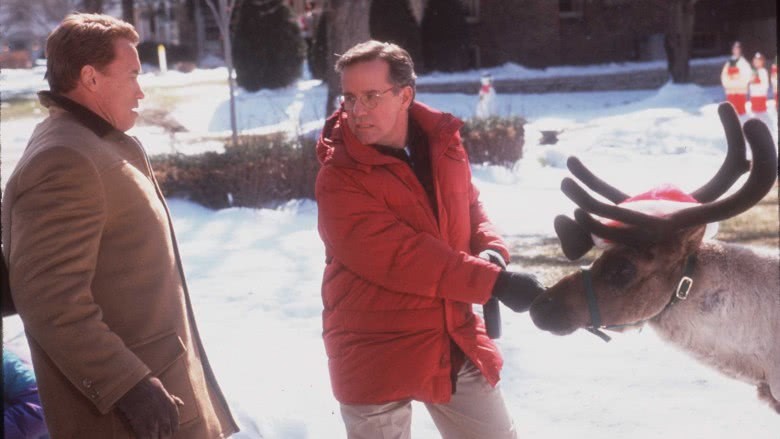Celebs Who Perished Under The Care Of Shady Doctors
Aside from fame and fortune, the receipt of special treatment is one of the top perks of being a celebrity. This extends to everything from exclusive clubs and restaurants to VIP sections everywhere, and even to medical care. Stars often have direct access to the best doctors. Not only that, but they enjoy house calls for the sake of their privacy, as well as an extensive doctor-patient relationship that most of us who wait around for an hour only to be seen for under five minutes would kill for. Though this kind of medical concierge service seems like a blessing, it has been a deadly curse for some, as their personal connection may have blurred the lines of professional ethics for their healthcare providers. Here are the celebs who died under the care of shady doctors.
Michael Jackson
Dr. Conrad Murray has become almost as famous as his pop star patient, Michael Jackson, who died in his care on June 25, 2009. According to Jackson's autopsy, he died of "acute propofol intoxication," which was ruled as accidental, but also notes the drug delivery as "intravenous injection by another." That's important, because it was the key claim that Murray denied in his trial for involuntary manslaughter.
Though Murray never took the stand, he gave an exclusive interview to Today toward the end of the trial. Murray's story is that in the course of treating Jackson, he was unaware that the singer had any addictions outside of his dependence on the powerful drug, propofol, which he needed to sleep. Propofol is "a hypnotic drug used for general anesthesia," according to Scientific American, which Murray claimed he had successfully weaned Jackson from just three days before his death. But after Jackson's pleas, Murray relented and administered what he referred to as an "inconsequential" dose. He then left the room for approximately two minutes to make a phone call, at which point Jackson stopped breathing and never recovered. Murray's lawyers suggested that in that time, Jackson somehow administered himself an extra, lethal dose of propofol.
Jurors didn't buy that theory, nor did they understand why it took Murray 20 minutes to call 911 after finding Jackson unresponsive, or the fact that when paramedics did finally arrive, Murray mentioned several drugs Jackson had taken, but failed to mention the propofol he administered. One juror, speaking to Good Morning America, summed up the reason for Murray's guilty verdict. "He [Jackson] had addictions. He asked other doctors to do it (give him the operating room anesthetic propofol). They said no. He was looking for somebody to say yes. And Conrad Murray said yes," she said. Murray was convicted of involuntary manslaughter, and ultimately served two years of his four year sentence.
Prince
Singer and guitarist, Prince, was found dead in his Minnesota home as a result of an overdose of fentanyl, an opioid "100 times more powerful than morphine," according to the Star Tribune. But outside of a single page death certificate, the documents relating to his death inquiry were sealed for just under one year. Those documents, newly unsealed, have revealed that the singer had multiple prescription drugs hidden in discreet containers all over his house, although none of them were prescribed to him.
According to CNN, Dr. Michael Todd Schulenberg admitted to writing a prescription under the name of Prince's "drummer and longtime friend, Kirk Johnson," for "privacy purposes," but he also maintained in a statement through his lawyers that he was "cooperating with the investigation and denied prescribing opioids to Prince or 'any other person with the intent that they would be given to Prince.'" We're not sure how those two statements jive, but wait, there's more.
Schulenberg also happened to be the doctor who showed up to Prince's home the day he died to "drop off test results." Schulenberg had also treated Prince the day before his death, and approximately two weeks prior, as well as prescribed non-opioid medications for the singer. Schulenberg also left his job three weeks after Prince's death. Police have yet to ascertain where Prince got the fentanyl that ultimately killed him, as well as many of the other prescription meds The Purple One had hoarded around his home, but their investigation is ongoing. Schulenberg continues to cooperate with the investigation and is adamant in his innocence, although questions over his involvement clearly remain.
Anna Nicole Smith
Model and actress, Anna Nicole Smith, was found dead at the Seminole Hard Rock Cafe Hotel in Florida on February 8, 2007. According to her autopsy, her cause of death was "acute combined drug intoxication." There were nine prescription medications as well as four "non-contributory drugs" in her system when she died. Among Smith's entourage of enablers were two doctors who ultimately got singled out and prosecuted for charges relating to how Smith obtained her medications.
Dr. Sandeep Kapoor, an internist Smith met through her boyfriend and lawyer, Howard K. Stern, "wrote numerous prescriptions for opiates and sedatives during the period he treated her," according to Fox News. He was somehow acquitted of all charges after his defense argued that he was following "a drug regimen originated by Smith's previous doctor who sold his practice to Kapoor."
Smith's other doctor, psychiatrist Khristine Eroshevich was convicted of "unlawfully prescribing Vicodin by fraud," after prosecutors put a pharmacist on the stand who refused to fill prescriptions Eroshevich was procuring for Smith, referring to the amount as "pharmaceutical suicide." The prosecution also proved that Eroshevich then used several other pharmacies to obtain the prescriptions, and personally delivered them to Smith in the Bahamas where she was living at the time. A judge later overturned the decision, reducing Eroshevich's charges to "a misdemeanor and sentenced her to a $100 fine and a year of probation," according to The LA Times.
We know we just got done showing how a court ultimately found that Smith's doctors were not culpable in her death, but we have to point out that during the investigation, it was shown that at the time of her death, Smith was in possession of 44 different prescription medications. Court rulings aside, something went terribly wrong there.
Marilyn Monroe
Marilyn Monroe's death has been the center of some pretty wild conspiracy theories. Just about everyone from the FBI to her housekeeper to the Kennedys and/or the mob were speculated to have murdered her. But her autopsy listed her cause of death as "acute barbiturate poisoning" due to "ingestion of overdose." The medical examiner who performed her autopsy concluded that he believed her death to be a suicide, which was a claim also curiously made by Monroe's physician at the very scene of her death. "I'm Dr. Hyman Engelberg, Marilyn Monroe's physician. I'm at her residence. She's committed suicide," he declared in a phone call to the LAPD, according to The LA Times. He also admitted to prescribing Monroe Nembutal, a sleep aid, just days before her death.
Engelberg was Monroe's internist, and he'd been treating her in conjunction with her psychiatrist, Ralph Greenson, who was also present on the day of her death. Though they would later give differing accounts of who prescribed what, both physicians oversaw Monroe's care, which at some point included her being prescribed chloral hydrate, which when taken in conjunction with Nembutal can be deadly, according to PBS Newshour.
Combined with the fact that Monroe was reportedly "in a depressed mood" at the time, and complaining to Greenson that she was unable to sleep, both doctors should have connected the dots that a tragedy could either accidentally or intentionally occur. At the very least, they should have been acutely aware of the dangers of anyone having access to such powerful drugs, let alone someone suffering from mental illness.
Elvis Presley
Like Dr. Conrad Murray, Dr. George C. Nichopoulos became a villainous figure to some after the death of Elvis Presley, who Nichopoulos had prescribed "thousands of doses of various drugs" during the last year the legendary singer was alive, according to The Washington Post. In 1981, Nichopoulos went on trial for over-prescribing drugs to the "Jailhouse Rock" singer, even though the medical examiner determined that "the drugs were not in concentrations high enough to lead to death," and that Elvis had died of "cardiac arrhythmia, caused by heart disease and hypertension."
But prosecutors apparently still wanted answers for why The King had prescriptions for over 10,000 pills, including "sedatives, amphetamines and narcotics." Nichopoulos' defense successfully argued that Presley had many ailments, like "arthritis, migraines, glaucoma and liver problems," and that Nichopoulos often prescribed placebos in an attempt to "keep Presley's pharmaceutical intake under control." It worked, and script-happy doc was acquitted on all charges.
Years later, Nichopoulos was stripped of his medical license by the Tennessee Board of Medical Examiners for, you guessed it, over-prescribing medications. Nichopoulos would later reveal in his 2010 memoir (via The Vintage News) that "the reason he over-prescribed was so he could treat Presley's entourage, band, and crew along with the singer. That way, the band would have their medications while on the road." Oh, well that makes perfect sense. Case dismissed!
Lisa Robin Kelly
On August 15, 2014, That 70s Show actress, Lisa Robin Kelly, died in her sleep in a rehab facility she had entered three days earlier. Her death certificate indicated that she died of "multiple drug toxicity," but the rehab center stated that she wasn't taking any detox medications at the time. As of this writing, her full autopsy and toxicology report are unavailable, and the immediate circumstances surrounding her death are equally mysterious.
Though investigators ruled out foul play, a source told The New York Daily News that a doctor at the rehab facility attempted to sign Kelly's death certificate without an autopsy. The source also said that the doctor was willing to speculate that she died of an embolism, only the problem with that is "any rehab death has to go through the coroner," according to official policy.
Not surprisingly, Kelly's family filed a wrongful death lawsuit against Pax House LLC, alleging that the rehab was "carelessly and negligently owned, managed, and operated," and that they were "negligent in the hiring, retention, training, and supervision of their agents, employees, servants, and/or independent contractors whom they assigned to care for patients," according to Radar Online. The suit was quietly settled and the terms were undisclosed.
Bernie Mac
Due to a weakened immune system from his decades-long battle with a little known inflammatory lung disease called sarcoidosis, Bernie Mac had developed an infection which led to a deadly bout of pneumonia. On the day he was diagnosed, Mac also sought treatment from his dermatologist of many years, Dr. Rene Earles. According to People, Mac ended up spending nine hours in Earles' clinic after he noticed the comedian had "unstable vital signs, and both rapid heart rate and breathing." Earles said that he gave Mac oxygen, as well as a medication to counteract a drug that another doctor had given him, because he believed it to be the source of Mac's negative reaction. Upon learning that Mac had been diagnosed with pneumonia in both lungs, Earles instructed Mac's driver to take him directly to the hospital. At no point did he call 911.
Mac's widow, Rhonda McCullough, later filed a wrongful death suit against Earles, suggesting that if Earles had "recognized cardiopulmonary instability" or "abnormal vital signs and signs of impending respiratory failure" and gotten Mac to a hospital sooner, he would have survived. McCullough later withdrew the lawsuit, but made sure to indicate that it was only because they were not prepared with their case. "There is no intention to drop," McCullough's lawyer said. "Instead there are some internal issues we want to shore up."
In another shady twist, The Chicago Tribune also suggested that the lawsuit was dropped because at the time, Earles had let his medical malpractice insurance lapse, which is not illegal in the state of Illinois where he practices, but could severely limit the amount of damages awarded. Not only that, but Earles also had "a pending 2008 lawsuit against Mac, alleging roughly $1 million in unpaid medical bills," which the late actor's estate disputes. What does it all add up to? A hot mess, and the death of a beloved comedian and actor that some believe could have been avoided.
Phil and Brynn Hartman
Phil Hartman was brutally murdered by his wife, Brynn, who then took her own life in one of the most shocking celebrity deaths of all time. According to a New York Post account of the horrific murder-suicide, Brynn, who had a long history of mental health issues and substance abuse, returned home one night after drinking at her friend, Ron Douglas' house. She shot Hartman three times at point blank range while he slept, killing him instantly. She then returned to the Douglas' house and confessed. Not believing her, Douglas went to Brynn's home where he discovered Phil's body, and called the police. Just as police arrived, Brynn got into bed with Hartman's body and turned the gun on herself.
Brynn's autopsy revealed a combination of alcohol, cocaine, and Zoloft, a prescription mood stabilizer used to treat depression, in her system. Gregor Omdahl, Brynn's brother, later filed a wrongful death lawsuit against Pfizer, the manufacturer of the drug. The suit also named Arthur Sorosky, the psychiatrist who allegedly gave Brynn "a manufacturer's sample of Zoloft on March 26, 1998, two months before the murder-suicide," according to The LA Times.
In an analysis of the case by Isaacs & Isaacs, a personal injury law firm, the lawsuit also alleged Sorosky failed to properly monitor Brynn's reaction to the drug given her history of substance abuse when he simply suggested that she take "half the dosage" after she complained about side effects. One of the possible side effect of Zoloft is "violent behavior including suicide," so it doesn't take a genius to connect the dots here. Pfizer settled for an undisclosed amount, and it's unclear what became of Sorosky.


